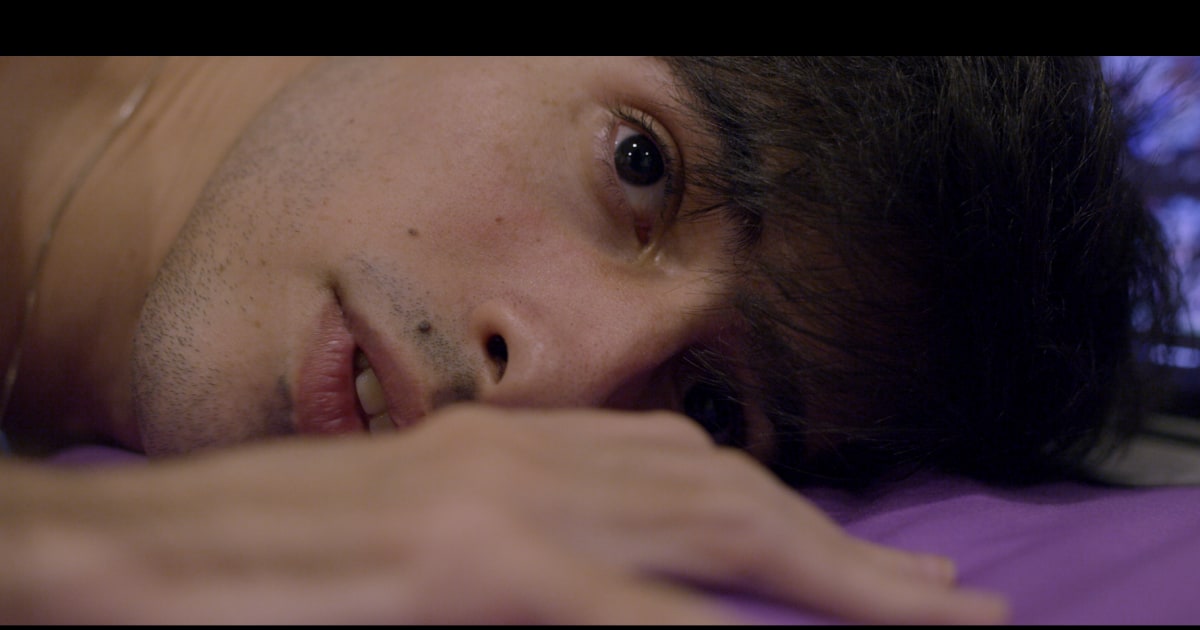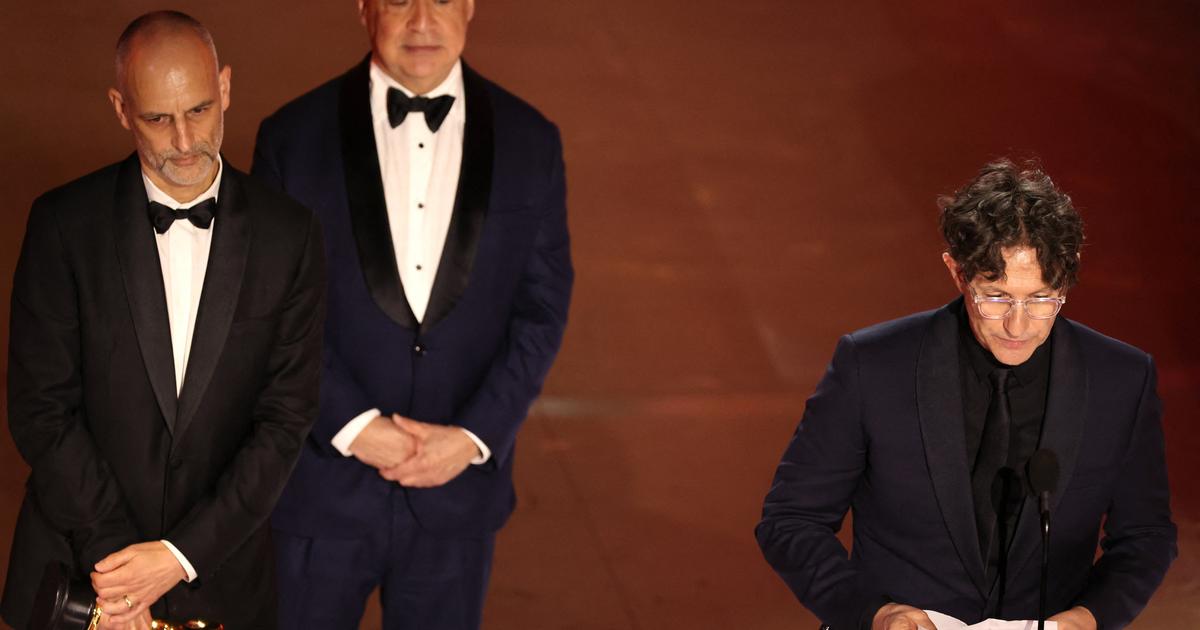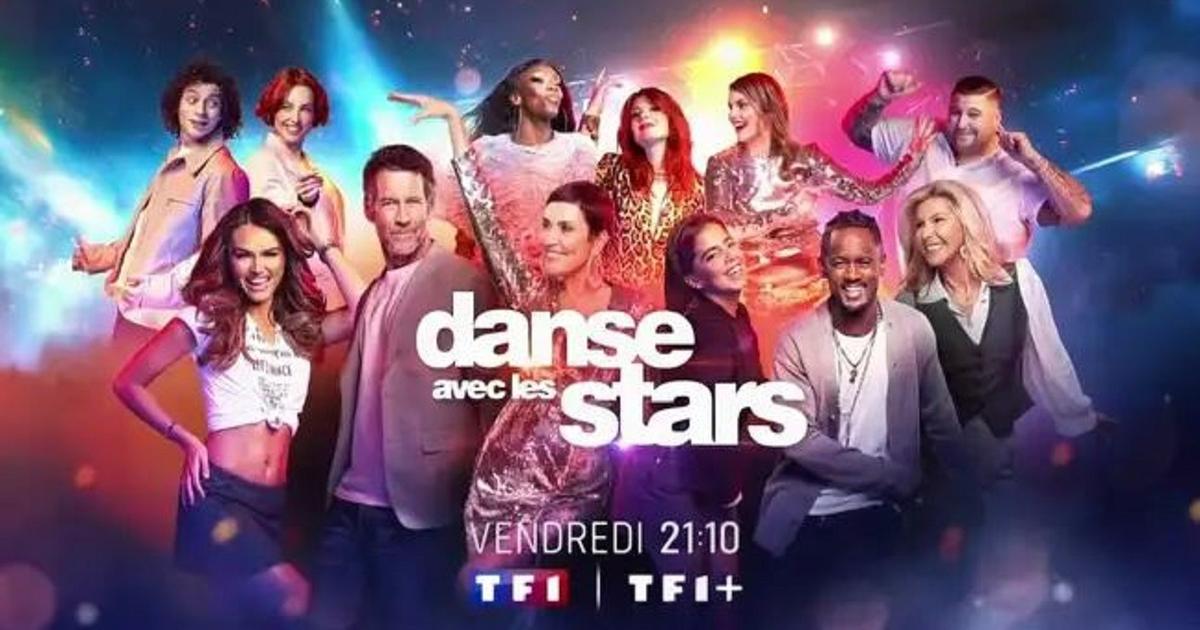Jonathan Benaim looks at the camera and smiles when he talks about his love.
He sometimes punctuates her lines with her left hand, while he says that he literally "can't live" without her.
"Thank you for taking me where I want to go and for allowing me to be where I am, I owe you so much," he explains emphatically, and shortly after, reveals that all of his love speech is dedicated to her wheelchair.
"Hi, I'm Jonathan Benaim, your invalid fav. This is one more week in your 100% action and 0% excuses section," he usually says at the beginning of the motivational videos that he uploads to his Instagram account, where his followers debate between the messages of support and the laughter for the good humor with which he copes with the limitations of his physical disability.
Benaim on a Panamanian beach during the making of 'Tuesco', in 2022.Daniel Poler
"I was born six months old, without some parts of my body being formed. I was born without buttocks. They put me in the incubator to finish the process and when I had three days left to go home, being a totally healthy child, without any type of disability "The nurse says that, due to carelessness, she forgets to change a needle that could only be in my body for 18 days. She left it for 21 days, and the needle became infected and gave me brain asepsis that left me in this condition," she
explains
. in an interview with Telemundo News.
The doctors told his parents that he would not live more than 48 hours, he says with a grim frown.
Then he says smiling: "Fortunately the doctors were very bad at math and those 48 hours have already turned into 29 years."
["I do not regret": the young Latina who lost an eye after being beaten for defending a child with disabilities]
Benaim is Venezuelan, a Caracas native who likes to defy expectations on a daily basis.
Despite his physical limitations, he works as a sales analyst for a transnational in the fashion world, where he directs projects and helps determine market trends for five Latin American countries.
A person with a disability is going to give you 200% because they know how difficult it is to get that job opportunity"
jonathan benaim
"They gave me the opportunity and saw beyond the four wheels that accompany me. That is the message that I always try to give to all corporations because I know that physically we can be a little scared or insecure when hiring, but You have to trust. A person with a disability is going to give you 200% because they know how difficult it is to get that job opportunity," he says.
Benaim in a sequence from 'Tuesco'.
"I was born six months old, without some parts of my body being formed," he explains in an interview with Noticias Telemundo.Daniel Poler
Now, Benaim lives with almost his entire family in Panama, where they had to move due to the political and economic debacle that has caused 7.2 million Venezuelans to leave their homeland.
In 2022, the adventure of her migration was captured in
Tuesco,
a short documentary from The New Yorker that was directed by Daniel Poler, a Panamanian-Venezuelan filmmaker who has been one of her best friends since childhood.
"Part of the magic of the documentary is its naturalness, because we saw Daniel grow up with a camera in his hand. Ever since he can remember, I think he wanted to dedicate himself to this world," Benaim comments with emotion.
Tuesco
, the name of the project, is a contraction of the phrase "tuescoñetao/todo descoñetado", a Venezuelanism used to describe a bruised person or something that is broken.
Benaim laughs when he explains that this phrase defines his condition very well, and in his family it became an affectionate nickname that ended up on the big screen.
My mom raised me with tough love.
She always tells me that she loves me, but she doesn't treat me any different"
"My mom raised me with tough love. She always tells me that she loves me, but she doesn't treat me differently than my brothers. She wants me to be strong and stand up for myself as much as possible. Of course, I will always require someone's help, but the confidence that my family has given me has been essential to be able to be where I am," he says.
Tuesco
has participated in various festivals such as the Hawai'i International Film Festival, Nashville Film Festival, UK Jewish Film Festival and Breaking Down Barriers: events in which he has been praised by specialized critics and the public.
"I'm always going to need someone's help, but the trust that my family has given me has been fundamental to being where I am," says Jonathan Benaim.
Daniel Poler
"Everything that has happened with the documentary is super special.
What for me was a family nickname, I think it became a way of naming those people who live with disabilities and genuinely and really accept each other. It has been
wonderful that people share their stories with me, and that they thank me for raising their voices with dignity. You have to show other realities of disability", comments Benaim about the changes he has experienced after the launch of the project.
It has been wonderful that people share their stories with me, and that they thank me for raising my voice with dignity, for showing other realities of what disability is"
jonathan benaim
Poler is sitting next to him, and the dynamic between the two shows the intimacy of friends who have spent decades talking about everything and nothing.
Sometimes, they burst out laughing because one completes what the other says.
"I admire Jonathan a lot. I think the most important thing about our relationship is that he's like my brother because I've known him all my life and my humor, my way of being, is obviously influenced by his family and by him," says the filmmaker, who has developed a successful editorial career at Condé Nast directing audiovisual productions for media such as GQ, Vanity Fair, Vogue and Wired, among others.
"Emigrating made me have another perspective on life, mature in an incredible way and I miss Venezuela a lot, but I think one has to adapt to realities."
In the photo she appears with his sister in 'Tuesco'.
Daniel Poler
From documentary to fiction
Laughing, the friends explain that they made such a powerful creative duo that the next step was inevitable.
So Poler decided to embark with Benaim on a fiction project that will be his first feature film.
"The film is called
Espina,
first of all because of Jonathan's spine, and because of the concept of removing a thorn, which is when you're dying to do something and you say you want to remove that thorn," explains the director, who he used to tell his friend that they had to write a script of his life.
["He was shot in the back": the family of a Latino with a disability who died shot by police sues a California city]
In 2022, and after several months of writing, Poler submitted the project to the Fondo Cine contest in Panama.
And they won.
This month the film is in full swing on location in Panama with a cast led by Benaim and experienced stars such as Paulina Mondragón, Aaron Diaz, Lola Ponce and Mimi Lazo, among others.
As it happens in the life of Benaim,
Espina
is also the story of a journey, the difference is that the fictional journey begins in Mexico and ends in Panama, a country to which the protagonist travels to confront the doctor responsible for his disability, due to to malpractice.
The film seeks to challenge the stigmas of victimization that are often seen in cinema when issues of disability are presented"
daniel poler
"It's a journey of character maturation, of a person who never had the opportunity to live first experiences. But it's a super nice and fun script because the film seeks to challenge the stigmas of victimization that are usually seen in the cinema when the disability issues," says Poler.
Benaim always loved the idea of collaborating on the film and helping to recreate some situations from his life in fiction, however, nothing had prepared him for what was going to happen.
"I told him that I wanted to help him with the casting of the person who was going to play me, to make sure that the posture was correct and that it looked real on camera. But one day he said to me: 'Jonathan, it's going to be you.' I heard that, I almost literally fell out of my chair," he says with a laugh.
—Did you ever imagine that you were going to star in two film productions?
—In the last year of school, they asked us to write our greatest wish and I wrote on the piece of paper that I wanted to win an Oscar and I drew it.
Two days later they called me at the office, very concerned because they saw the piece of paper and asked me how it was possible that I hadn't wanted to walk.
And I told them that it was clear that I was not going to walk, so I had to look for a more real goal and that was a shock to them.
They told me it was wrong, that I had to focus on my reality.
Years later, that dream begins to come true with this project.
We already started that path.
An activist with cerebral palsy asks AMLO for more resources for people with disabilities
March 17, 202300:57
—There are many differences between shooting a documentary and recording a work of fiction, how has that change been?
- The truth that has been incredible.
I have known Daniel for as long as I can remember and walking this path with him has been magical, a lot of learning, a lot of knowledge.
He has made me discover some Jonathan's that I didn't know existed.
He has taught me to look for myself, to analyze myself and it has been an incredible job that I thank him for because it will not only help me for the project, but they are tools for what comes next.
What is the most important thing acting has taught you?
I have learned the importance of breathing.
I believe that until you act, you do not realize that you are breathing inadequately.
And that has been thanks to this process.
All the modulations and exercises have been a challenge that makes me happy.
—Has being led by one of your best friends changed your relationship?
—Daniel as a friend is incredible, that is, he is always there with the best jokes, with an occurrence that makes me smile and he kind of knows how to put the icing on the cake.
And as a director he has been an incredible discovery, because he is very clear on what he wants and how he wants to bring it to the screen, he has a subtle and direct way of achieving his goals.
So, for me it has been like discovering another side of him and also mine.
It has been an incredible journey.
Brothers with disabilities lead a soccer team in Colombia
Dec 1, 202203:01
—According to the WHO, there are more than 1,200 million people who have some significant disability, and this population presents a greater risk of dying earlier, which increases mental health problems such as depression, among others. How do you deal with the challenges that your condition presents you on a daily basis?
—I know that after the pandemic there was a very strong shot with that situation.
I confess to you that I have had difficult moments, especially in my adolescence, when I had not yet reached this level of understanding of my condition and what helped me was my family, my environment, where Daniel was from the first moment.
Little by little I was understanding what my reality was and I began to set myself achievable goals.
If you see that something doesn't work out for you, you don't have to give up.
You just recalculate and focus your energy on something that truly makes you feel good and takes you to the next level.
One has to adapt to the realities and environments that life presents to you"
—Migration is one of the themes that unites the documentary and the feature film. Now that you live in Panama, do you miss Caracas?
—Panama has been a super country for me that has opened its doors for me in an incredible way, it has allowed me to develop professionally as a person.
Emigrating made me have another perspective on life, mature in an incredible way and I miss Venezuela very much, I miss my streets, I miss Ávila, I miss homemade arepas.
But I think one has to adapt to the realities and environments that life throws at you.
—You always tend to mention your family as the determining factor in your personal and professional growth. Has that tough love helped you to be more independent?
—I always think of those relatives who are overprotective of their members who have disabilities, and I can tell them that I understand them, I embrace them and I understand them.
But they have to start letting go because they just think that when you are not in this world, they are going to continue and they need to have tools that allow them to defend themselves in this world.
So give them opportunities, don't hold them back.
There is a phrase that I really like: 'Falling down is allowed, but getting up is mandatory'.
Edition: Eulimar Núñez. Video: Laura Quiroz, Victoria Albanesi









